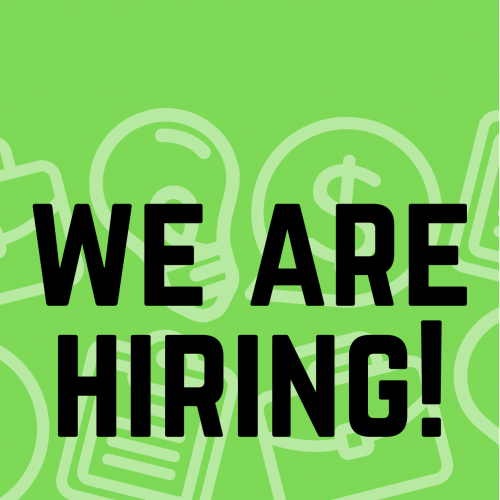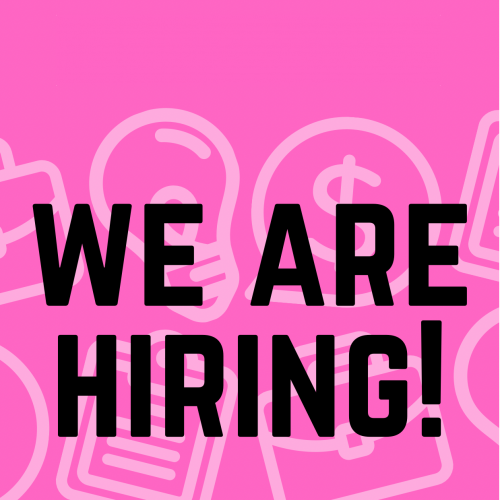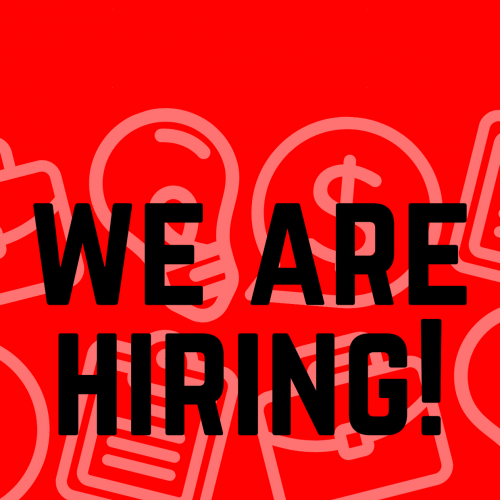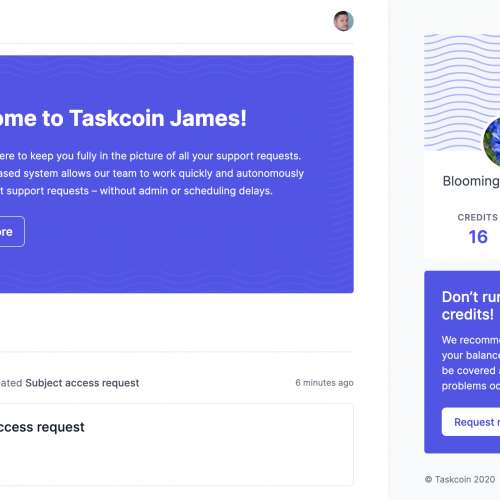“Fundraising is something that truly differentiates the experience as a ‘for good’ startup versus a regular startup”, Tessa Clarke tells me.
As co-founder of surplus food-sharing app OLIO, she would certainly know. Having spent over a year preparing for and then taking on the challenge of the startup’s third funding round – the Series A – she knows exactly what it means to be fundraising with a difference.
When Tessa came to Simpleweb back in 2015, she and fellow co-founder Saasha had one mission only – to eliminate avoidable food waste in the home and local community. That’s the leftover carrots sitting in your vegetable drawer that you’ve no time to eat before a long weekend away. And the sandwiches your local cafe haven’t managed to sell during the lunch rush. Surplus food that could still be eaten but often ends up in landfill.
On a tight budget, the need for OLIO was proven with the WhatsApp chat app, allowing neighbours to let other neighbours know when they had excess food going spare. As one of the simplest and most effective forms of idea validation we’ve ever seen, the first version of the mobile app was built and launched shortly after in July 2015. As OLIO grew, they were joined by a raft of volunteers wanting to help with OLIO’s mission, forming what is now known as the ‘Food Waste Heroes’ programme.
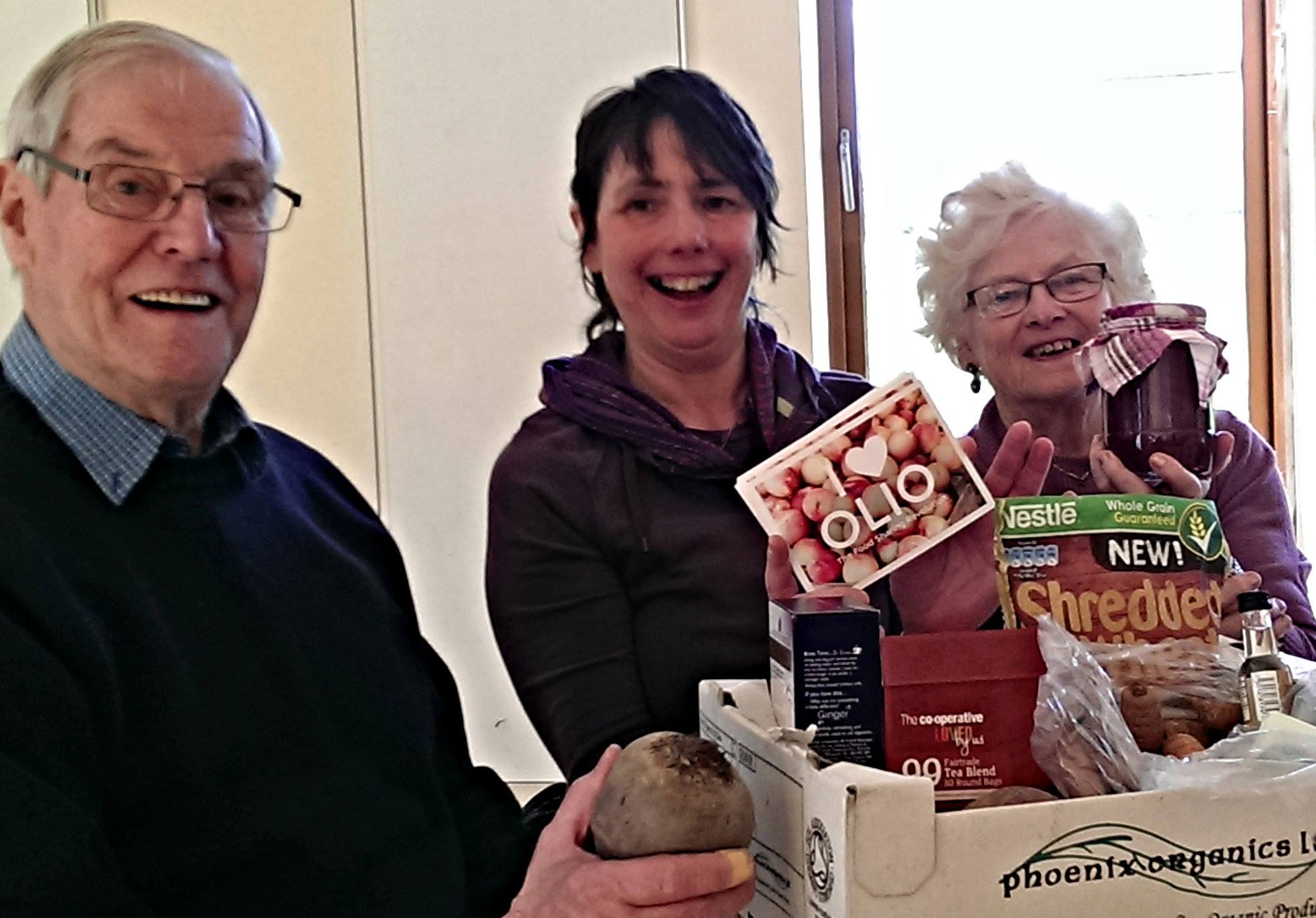 Food Waste Heroes: OLIO volunteer Fiona pictured sharing food with her neighbours
Food Waste Heroes: OLIO volunteer Fiona pictured sharing food with her neighbours
But OLIO aren’t a charity like some might assume. They’re one of a new breed of for-profit businesses that aim to transform the way in which we tackle unfathomably large issues such as the environment and social inequality.
The A game
Raising a Series A round is a massive undertaking for all startup founders, but for Tessa – the biggest challenge of this was finding investors that believed in OLIO’s mission as much as they did.
My belief that the world could become a better place was inextricably linked to our success in fundraising with OLIO
It’s been part of the journey from the start of course, but more complex and nuanced as demands from investors increased. Tessa explains: “Our first fundraising round was sadly impossible to replicate. I went and asked for advice and got investment and it was a very quick, smooth process.
“With the pre-series A round I learned retrospectively that we’d made the mistake of going out to market at the same time as networking to find investors, so that meant the raise process took quite a long time. In particular because we’re looking for a very specific type of investor.
“It’s not like solving the problem of food waste is a hot area like AI or VR”, Tessa adds. “So you have to find people who are genuinely as excited as we are about it, and who have values and beliefs that are aligned with us in terms of the importance of sustainability and the belief that profit and purpose can coexist.
“So the third time round I spent a full year meeting with investors and pre-screening them before going to market. For quite literally 52 weeks, I met with between one and three investors every single week. That meant that by the time I went to market, I knew who I was going to target and who was a good fit for us. That made the whole fundraising process far more efficient.”
As well as playing the long game and experiencing the traditional highs, lows and stresses of fundraising as a startup founder, Tessa shares the third dimension of raising for a cause she passionately believes in. “I very much felt that my faith in humanity and belief that the world could become a better place was inextricably linked to our success in fundraising with OLIO”, she tells us.
“We genuinely are motivated by this urgent need to solve the problem of food waste. Not succeeding in our mission isn’t an option for us as: if we fail, the prognosis for humanity is a pretty bleak one.”
A gap in the market
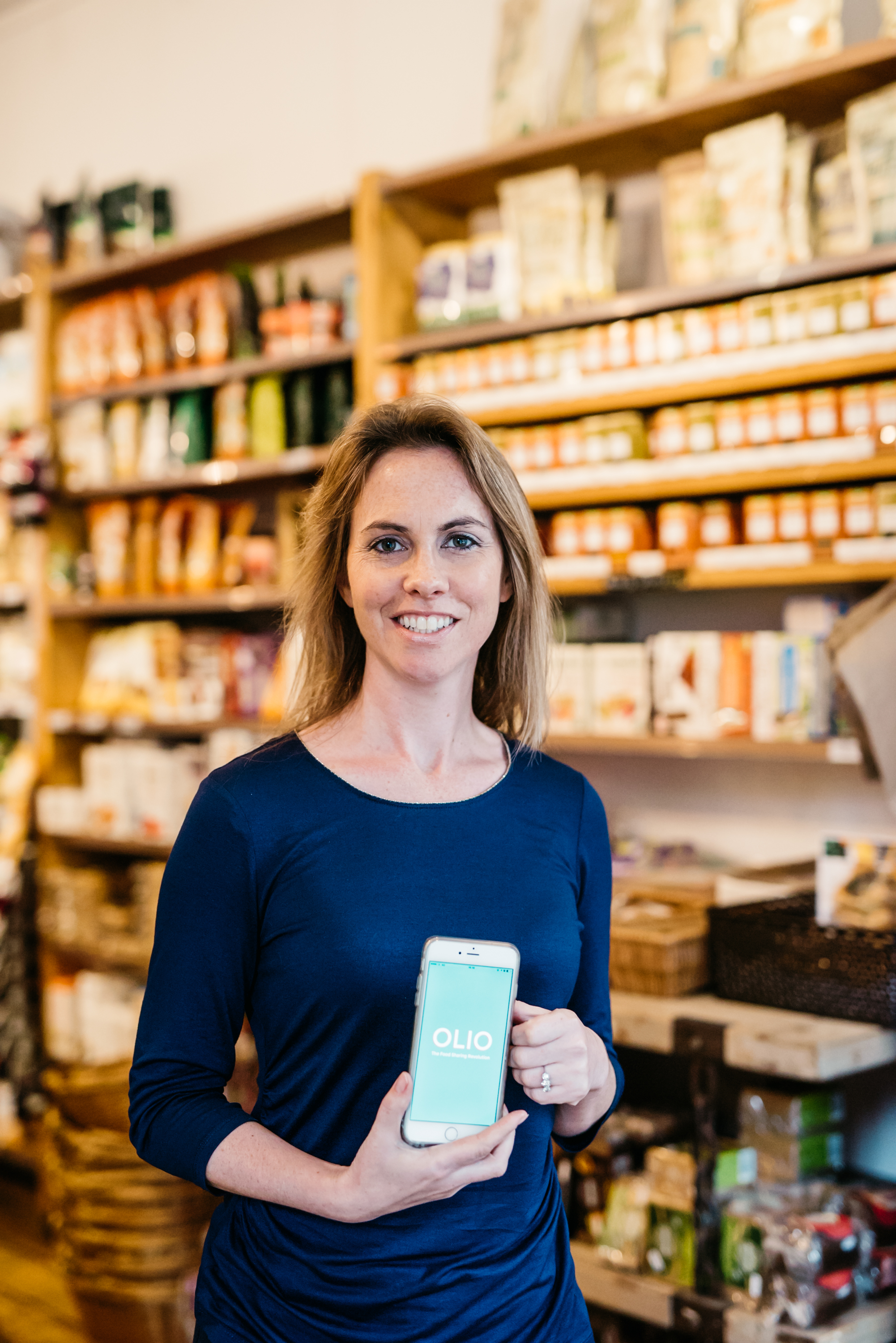 Thankfully, Tessa found several investors who not only believed in the OLIO mission but were also excited by the traction and business model and were regular users of the app too.
Thankfully, Tessa found several investors who not only believed in the OLIO mission but were also excited by the traction and business model and were regular users of the app too.
“It absolutely blew my mind that some people were looking to invest hundreds of thousands or even millions of pounds in OLIO without even looking at the product!” Tessa recounts.
“But we had several examples where investors not only looked at our product but they used our product, sending us emails that were bubbling over with excitement after they’d tried it. For us, there’s nothing better than getting an email from an investor that recounts an incredible experience they had sharing food via OLIO.”
Of course, as surprising as it sounds, convincing investors to pump money into your startup isn’t all about the product. The size of the market, the team, traction, plans for monetisation and investor landscape all have an impact, and that’s just to name a few.
For OLIO, the crux point came in the business’ monetisation strategy. “When we went out to market, I visualised that we had a scorecard with different areas that investors would score us against”, says Tessa.
“We had As or A*s against most but in a few areas, we were definitely a C. And so, very quickly, all of our conversations with investors tended to focus around those C-areas. For us specifically, it was the fact that we are still early in our monetisation journey.
“American investors are quite different to UK and European investors, but we’re raising in the European market where having a strong track record of monetisation at Series A is extremely important. This immediately knocked out a significant proportion of investors.”
The new business paradigm will be, and will have to be, profit with purpose
Tessa adds: “We also found it challenging to bridge the gap between finding mission-aligned investors with enough capital to deploy to enable them to be less risk-averse.
“The impact investors that were 100% mission aligned often didn’t work out because we were seen as too ‘risky’ due to how early we are in our monetisation journey. Whilst the classic VCs, who often had a greater appetite for risk, sadly weren’t always mission aligned.
“So there is a massive gap in the market from a fundraising perspective in terms of impact-oriented investors that have large amounts of capital to deploy at the early stage. That therefore meant it was just that little bit harder to fundraise as a ‘for good’ company at an early stage.”
Changes afoot
Despite challenges on the way, OLIO are now a shining success story for what it means to succeed at Series A as a impact-oriented startup. They are one of the seeds for a change in the investment climate and proof that attitudes are shifting.
“Every six months a new impact-oriented fund emerges and, over time, these funds will get bigger and bigger”, Tessa tells us. “I also believe that the new business paradigm will be, and will have to be, profit with purpose.”
It’s so exciting to see new energy, ideas and vision come into the business
With funds in the bank, OLIO are now proving how change can also come from the bottom up. “We’ve had the same team of nine people for about two and a half years and we’ve now got the chance to invest in the product by doubling the size of the team,” Tessa explains.
“The interview process has been both exciting and humbling because, where you have such a strong mission like we do, we’ve been overwhelmed with high-calibre, off the charts passionate candidates – and it’s so exciting to see that new energy, new ideas and new vision come into the business.
“We are definitely at a massive competitive advantage because we are able to punch above our weight in terms of the calibre of people we attract. Because more and more people are saying ‘I want to wake up every morning and know that what I’m doing is making a real difference’, and so having such a strong mission is really exciting.”
Forward momentum
Whilst OLIO plough ahead with eliminating avoidable food waste through food sharing, Tessa has built up an expanse of experience raising Series A for a startup with a strong and focussed positive mission – with plenty of tips for startups looking to emulate their success.
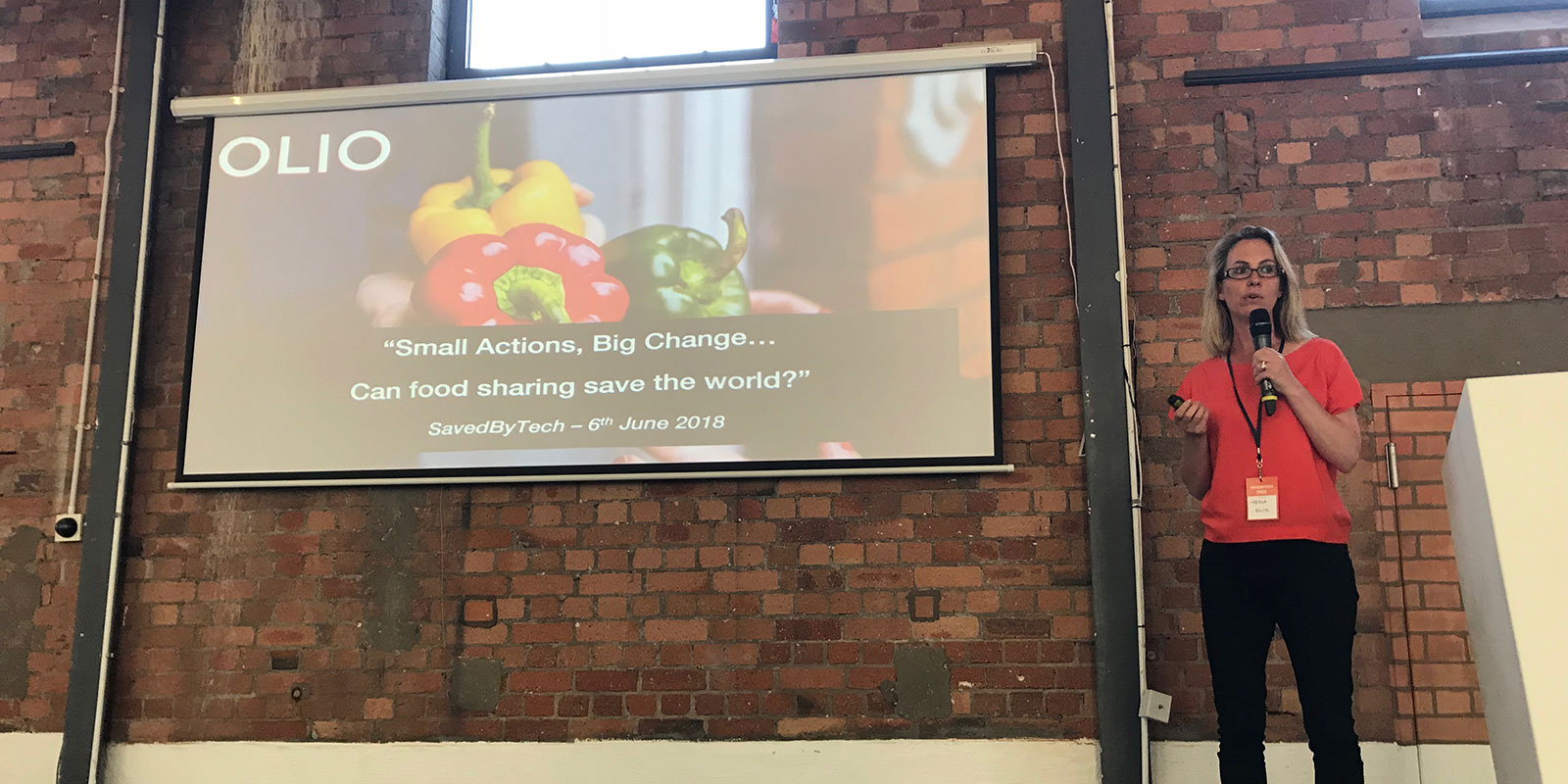 Saved by tech: Tessa speaks at annual tech conference Saved By Tech about how OLIO could save the world with food sharing
Saved by tech: Tessa speaks at annual tech conference Saved By Tech about how OLIO could save the world with food sharing
Offering her best advice to other mission-focussed founders, she tells us: “Start early, network and pre-screen investors so that when you go out to market you can make it as efficient as possible.
“Push your current investors to really commit. For us, this meant multiple closes. Get some certainty and security and some cash in the bank with the first close, which then gives you a bit more time to close up the rest of the round.
We want a billion people to be using OLIO in ten years time
“I think you also have to develop an incredibly thick skin. You have to understand that, by definition, you’ll get far more ‘no’s’ than ‘yes’s’. You shouldn’t take that as a sign of failure or as any form of slight against yourself or your business, you just have to pick yourself back up again, dust yourself down, take the learnings from the no and keep moving on.
“That said, I think it’s extremely important to take care of yourself during this period of time. Make sure you carve out time for exercise and for your family. It’s not healthy and you won’t be as effective if you go into this process exhausted and wired.”
For Tessa, fundraising success certainly hasn’t gone to her head. “In terms of our goal and mission, it remains unchanged”, she says.
“We want a billion people to be using OLIO in ten years time. And we’re on a mission to make that happen.”
To apply for investment for your early-stage startup, just fill out this application form.
